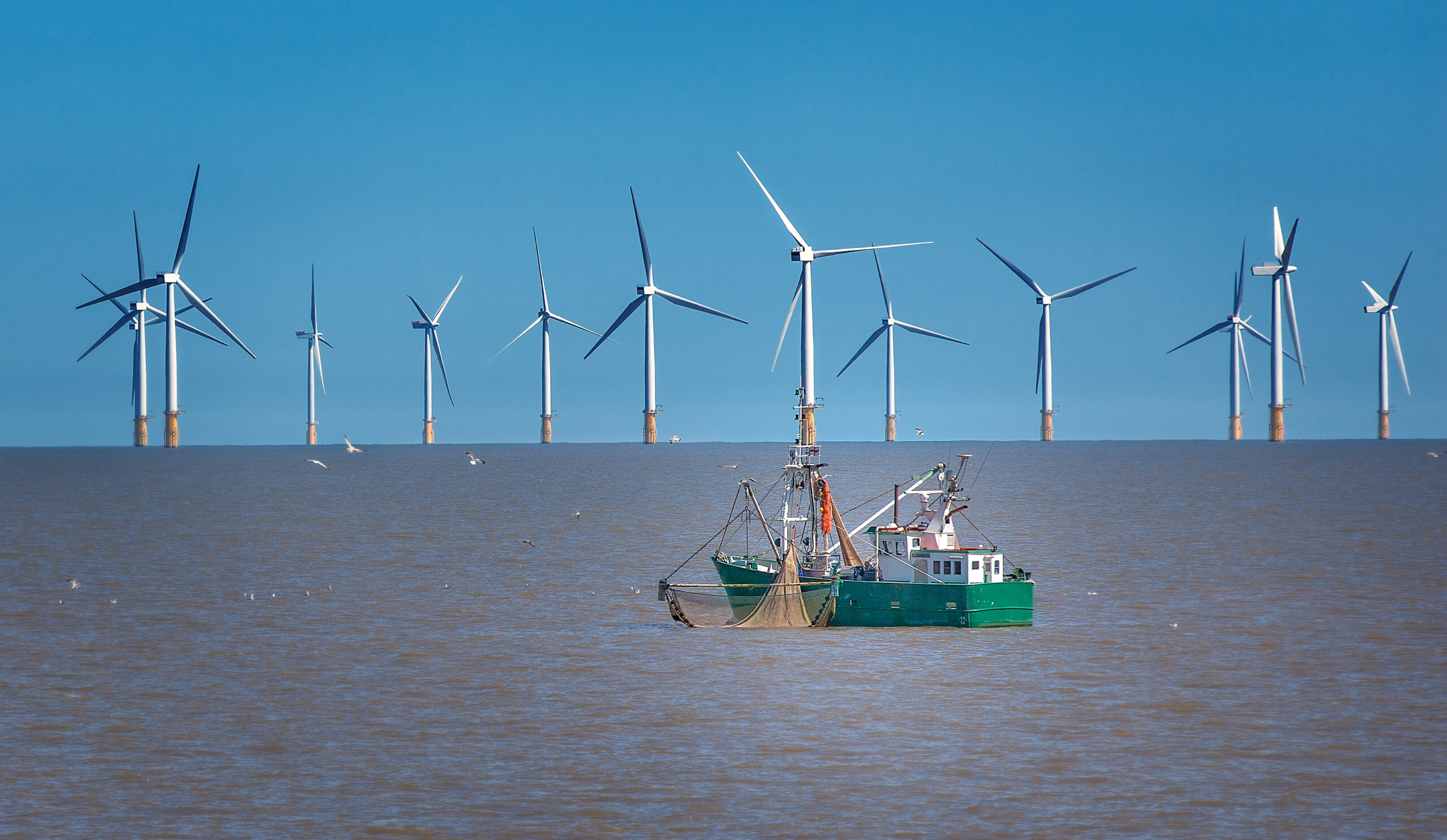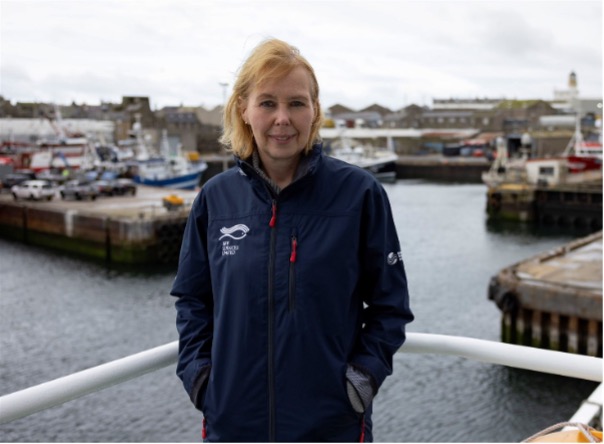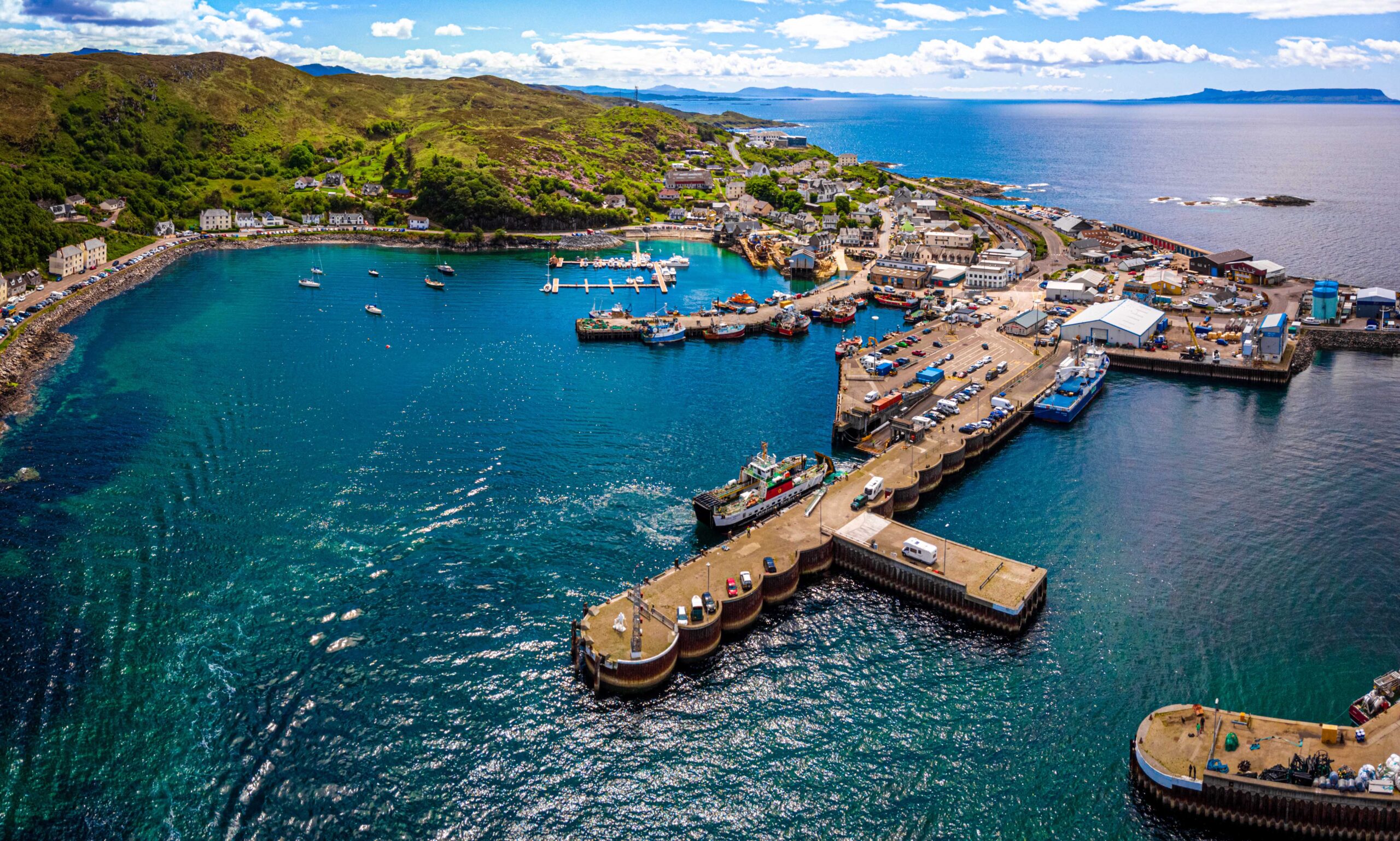Scottish fishing chiefs have warned their industry faces a twin threat to its future in 2025.
Offshore wind farms in the North Sea and the prime minister’s ambitions to “reset” relations between the UK and European Union are major dangers for the sector, they say.
Scotland’s fishing sector is at risk of being “crushed” unless governments radically rethink their approach, an industry group has warned.
The Scottish Fishermen’s Federation (SFF) has announced a series of concerns it says could put the jobs of hundreds of skippers and crew in jeopardy.
Scottish Fishermen’s Federation (SFF) chief executive Elspeth Macdonald outlined these concerns in her new year message to ministers and civil servants “across the UK and beyond”, as reported in the Herald and Press & Journal.
She said a widespread sense of crisis had spawned a bout of “initiative-itis” by the Scottish and UK governments.
Green energy transition
SFF chief executive Elspeth Macdonald said the fishing sector must not become a casualty of the transition to green energy.
She said: “All our futures depend on shifting from an energy system based on fossil fuels to one that has less impact on global climate.
“But the ‘windrush’ – the planned expansion of offshore wind in our seas – floating offshore wind in particular – going ever-further and faster, is not proving to be a just transition for our fishing industry.
She added: “At present, there are no proposals on the table to compensate our industry for the losses we will suffer, which are increasingly recognised by floating offshore wind developers as being significant.
“We call on governments to step up to their responsibilities and live up to their commitments of a just transition – hollow words are not enough.”
The EU relationship
The SFF also said “completely unreasonable” demands were being made by under the post-Brexit Trade and Co-operation Agreement (TCA) with the EU.
The deal made in 2021 outlines the free trade in goods as well as agreements on access to UK fisheries.
Ms Macdonald said access to UK fishing waters must not be used as a bargaining chip in resetting relationships with Europe.
She continued: “The EU seems to have forgotten what it signed up to back in 2020 – that from 2026, we move to a position where access to waters becomes part of annual negotiations.
“If the EU wants something different for the benefit of their fishing fleet, they will need to offer something in return for the benefit of ours.”
Ms Macdonald also stressed that any agri-food or veterinary deal struck with Brussels must not come at the price of a long-term fisheries access deal benefitting only the EU.
“The fishing industry paid a heavy price for the Brexit deal in the first place and should not pay the price of a wider arrangement yet again,” she said.
What are the post-Brexit rules on fishing?
- EU boats can continue to fish in UK waters, but UK boats will get a greater share of the fish from UK waters, the BBC noted.
- That shift in share has been phased in since theTrade and Co-operation Agreement in 2021.
- After 2026 there will be annual negotiations to decide how the catch is shared out between the UK and EU.
- The UK would have the right to exclude EU boats, but the EU could respond with taxes on UK fish exports or denying boats access to EU waters.
While negotiations around EU rights and quotas are reserved to the UK government, management of fisheries is devolved to Holyrood.
The Scottish government said it would always seek to secure the “best possible outcome” for access to fisheries.
A spokesperson said: “We fully understand the need to balance the growth of the offshore renewables sector with continued investment in Scotland’s fisheries, seafood and wider marine sectors and the communities and jobs which rely on them.
“We will need to make the right choices about how we develop and use Scotland’s marine space sustainably.
“We will continue to engage closely with the fishing industry, as key partners, in developing those plans.”
A spokesperson for the UK government’s department for environment, food and rural affairs said it would seek to tear down unnecessary trade barriers.
They added: “We are working closely with both the fishing and offshore wind industries to balance their needs and identify opportunities for space sharing, whilst also restoring and protecting the environment.”


